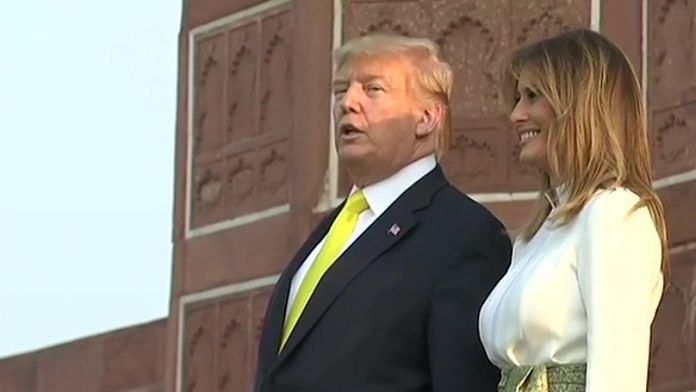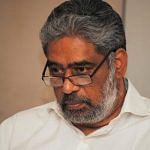C. Raja Mohan | Director, Institute of South Asian Studies, National University of Singapore
The Indian Express
Mohan argues that India doesn’t need to worry about the US meddling in internal or bilateral issues as long as Donald Trump is their president. He argues, “Those who worry about Trump’s meddling in Kashmir do not see how different he is from the predecessors in the White House.” Unlike earlier where “American leaders” meddled in problems everywhere, Trump is “not convinced” that the country needs to waste its resources solving other people’s problems.
 A U.S. strategy only meant to isolate China
A U.S. strategy only meant to isolate China
Vijay Prashad | Director of Tricontinental: Institute for Social Research
The Hindu
Prashad argues that the US geopolitical strategy is solely based on isolating China. He argues that the US is resorting to rhetorical arguments like ‘repression in China’ as it is unable to outspend China in infrastructure projects. He notes that Japan and Australia have been hedging their bets against this US agenda but “India remains loyal to the agenda set by the US”. Prasad advises India to study the ‘US project’ and not ‘jump into it eagerly’.
Sreeram Sundar Chaulia | Dean, Jindal School of International Affairs.
The Times of India
Chaulia comments on US President Donald Trump’s connection with the Indian public on Twitter and how “the president understands where the pulse of the public lies and taps it straight on instead of filtering his message via traditional media gatekeepers.” He argues, “The rawness and uninhibited form of communication from Trump carries tremendous appeal” and “Trump’s popularity in India owes not just to unorthodox public relations tactics, but also his bluntness and political incorrectness. Somewhere deep in the Indian psyche, there is a rejection of liberal multicultural niceties and genteel elitist politeness.”
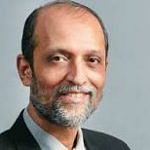 The evident potential of a tighter American embrace
The evident potential of a tighter American embrace
Ajit Ranade | Economist and a senior fellow, The Takshashila Institution
Mint
Ranade traces the transformation of the Indo-US relationship from “one of apartheid and sanctions to the historic civilian nuclear treaty of 2006”. He then suggests ways to make these ties “tighter”. According to Ranade, the US should reconsider India for preferential import rules and should “relax its work visa regime at a time of growing trade in services”.
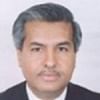 The unassailable keywords for the judiciary
The unassailable keywords for the judiciary
Dushyant Dave | Senior Advocate at the Supreme Court of India and the President of the Supreme Court Bar Association.
The Hindu
Dave comments on Supreme Court Justice Arun Mishra’s praise for Prime Minister Narendra Modi in a public forum Saturday. He argues that Justice Mishra’s statement raises questions about the independence of the judiciary and the damage his statement has caused is incalculable. He mentions various instances when the Supreme Court reiterated the need for its independence, including a 1981 judgment where a bench held that “judges should be stern stuff and tough fire”, and builds a case that Justice Mishra’s statement should have been avoided.
Ajay Srivastava | Writer is an Indian Trade Service officer.
The Times of India
Srivastava discusses the success of the solar industry and the way forward. He notes that solar energy has already made a positive impact in the consumer power sector, however, more is yet to come. He discusses the limitations of solar power, especially its use for industrial purposes, “Current solar technology cannot generate the high temperatures required for melting steel or making cement”.
Syed Ata Hasnain | Chancellor, Central University of Kashmir
The Indian Express
Hasnain comments on the 2019 Pulwama attack and the “element of irrationality” in Pakistan’s deep state. He argues that the deep state’s discomfort with prospering Indo-Pak relations in mid-2015 led to them carrying out terrorist attacks on Indian soil but they miscalculated the consequences of the Pulwama attack. “The Balakot-type response 12 days later was unexpected, but demonstrated political will, military escalation control and a willingness to engage internationally to neutralise Pakistani propaganda,” notes Hasnain.
 India must support its allies in Kabul
India must support its allies in Kabul
Avinash Paliwal | Teaches at SOAS, University of London
Hindustan Times
Paliwal advises India to support its allies in Afghanistan and at the same time “expand its equities among different political constellations in Afghanistan”. He states India’s support for President Ashraf Ghani is “loaded with strategic intent” and strives to create a balance between Kabul and Islamabad. He argues that the withdrawal of US troops from Afghanistan will lead to the reemergence of Pakistan-backed Taliban and India must be open to engagement with them.
Solve the tax problems of small firms to achieve economic goals
V. Anantha Nageswaran | Member of the Economic Advisory Council to the Prime Minister
Indira Rajaraman | Economist
Mint
To overcome the challenge of credit availability faced by MSMEs, Nageswaran and Rajaraman suggest the government do three things. First, increase the time frame for the payment of GST and for the filing of returns for MSME filers. Second, reduce penal interest rate on late payments by MSMEs “for businesses under a certain threshold of revenue”. Finally, “get big buyers to accept invoices linking GST with the Trade Receivables Discounting System (TreDS)”.
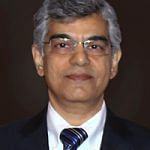 Why should women who are enthusiastic to join workforce exit labour mkts?
Why should women who are enthusiastic to join workforce exit labour mkts?
Mahesh Vyas | MD & CEO, CMIE
Business Standard
Vyas discusses the spike in labour force participation rate of women between the ages of 20-24 during the September-December 2019 period, “the highest …since demonetisation”. Though this is a welcome change, many women discontinue to work after their twenties and therefore there is a need to find out why and “remove those hurdles”, he explains.
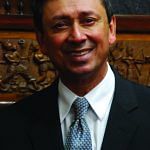 Right person for the right job
Right person for the right job
Jaimini Bhagwati | Former Indian Ambassador and World Bank Treasury professional
Business Standard
Bhagwati connects the economic slowdown to the lack of expertise among senior government positions. He criticises the Appointments Committee of the Cabinet for restricting these positions to IAS officers (retired or about to retire). He suggests the selection process begin six months before the incumbent’s term is up and a “nothing to lose” selection committee should be set up to make recommendations to the ACC.
5G shouldn’t be rolled out in a hurry
Brijendra K. Syngal | Former CMD of VSNL, is Senior Advisor, Dua Consulting
Hindu Business Line
Syngal debunks the “hype” around 5G’s possible future and suggests it be “replaced by a more balanced and practical view of its potential applications over the next decade”. He also points out that India’s pursuit of 5G comes at a time when our “beleaguered telcos are staring at huge debt and their financial outlook remains bleak”.
 The rise of data self censorship thresholds
The rise of data self censorship thresholds
Lekha Chakraborty | Professor, NIPFP
Financial Express
Chakraborty calls the central government’s decision to “scrap” data from the 2019 National Sample Survey Consumption rounds, “data fundamentalism”. It also points to a “lack of high frequency data” for analysing income inequality, and highlights the “time lag involved in publishing the data”, she writes. Without authentic data, the “impact of public policies like demonetisation and GST on the informal sector cannot be analysed”, she writes.
Rajeev Malik | Founder & director, Macroshanti Pte Ltd.
Financial Express
Malik discusses the Flexible Inflation Targeting (IT) framework against the backdrop of the economic slowdown, and the failure to achieve a “structural decline” in retail inflation and interest rates. He concludes that the monetary policy committee (MPC) is becoming “a sideshow as RBI reverts to a version of the old, discarded Governor-centric multiple-targets approach”.
Today’s Editorials
The Indian Express: Express writes about the incidents of violence that broke out Monday in northeast Delhi and calls for immediate action. It also reminds the BJP and Delhi Police of its responsibility to restore peace and stability in the capital. The daily also urges the BJP to look into the role of its leader Kapil Mishra, who made inflammatory speeches a couple of days ago. It underlines Delhi CM Arvind Kejriwal’s responsibility urging him to work with the Centre to ensure peace.
Hindustan Times: HT says that PM Modi and President Trump’s speeches at Motera stadium yesterday US President went “beyond just the transactional”. From security, defence, economy to Indo-Pacifc and countering terrorism, they touched upon almost very aspect of the bilateral relationship. HT concludes that the spectacle was worth a thousand agreements.
The Times of India: The step to eliminate MDR (Merchant Discount Rate) — a term encompassing the range of fees collected by different entities to make a digital transaction possible —needs to be seen in the context of constraints existing in India’s digital payments ecosystem. Many firms which form a link in the chain of digital transactions depend on MDR to run their operations. In the absence of revenue, they will wither away, it says. Therefore, the government should use its resources to offset the costs incurred by the firms engaged in the backend of digital transactions.


